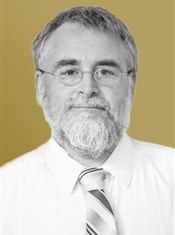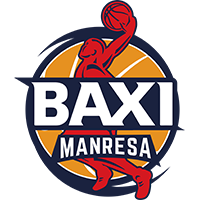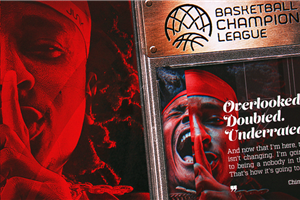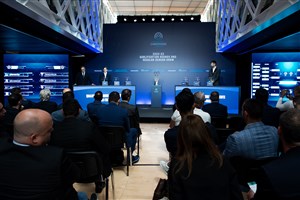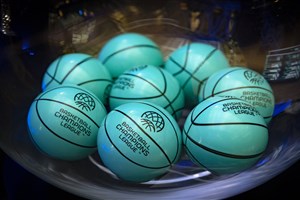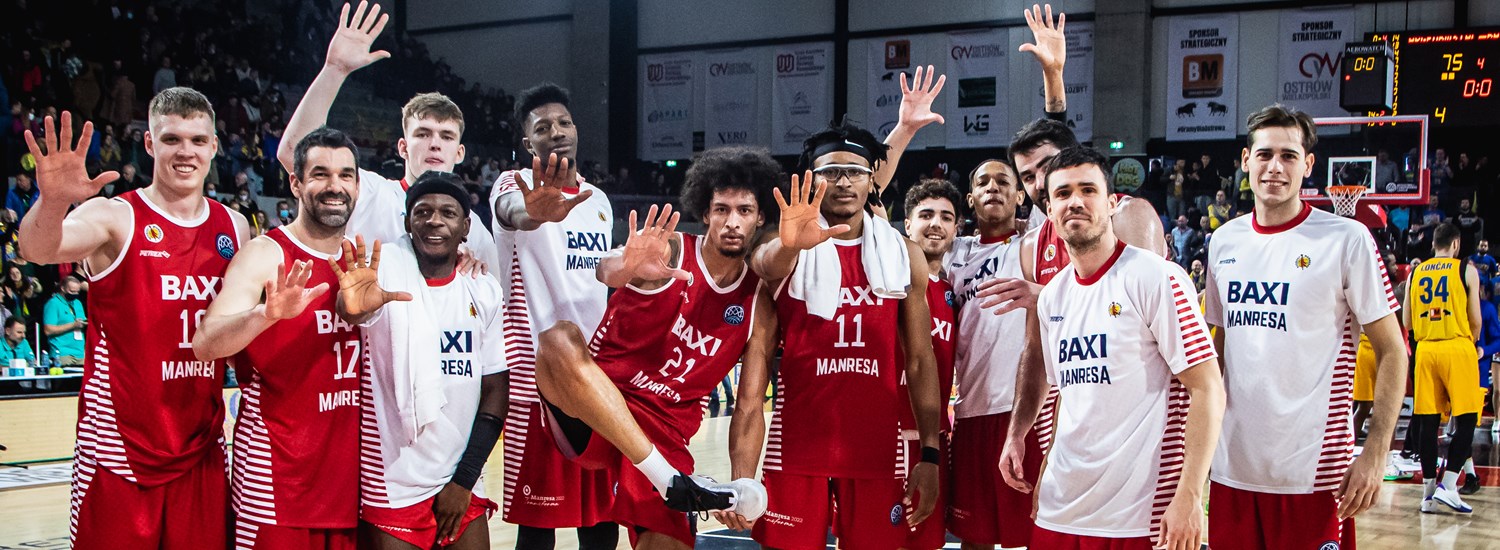
Manresa: The family that slow cooks its talents until they're ready
To encourage the development of more young local talents, the Basketball Champions League requires its teams to register at least 5 Home Grown Players on the game score sheet (if 11 or more players listed, otherwise 4 if the roster has 10 or fewer players). Once a month, we will look and see how one of the BCL clubs work to develop their young players.
MANRESA (Spain) - Imagine the following: a family sits around a beloved, stable table they have shared for decades. They raise later generations in the traditions before them and evenings they enjoy the fruits of their labor with a thought-out, carefully-prepared and perfectly-seasoned slow-cooked meal.
Now imagine this: the family in this scenario is BAXI Manresa; the table around which the members of the club gather are basketball games; and the slow-cooked meal they enjoy are talented youngsters who they have developed into pro level players.
That is how you can think of Manresa's youth development concept.
"Our prospects are not usually the youngster who finishes U18 and then in one or two years has a big impact on the pro team. We like to 'cook them slow' - like all the grandmas do. Not like all the fast food. We think to reach the pro team is a long road and they need to develop," explains Pere Romero.
Having been with the club for decades, Romero is Manresa's junior team head coach and responsible for the youth development teams. And he thinks the best example of the club's philosophy right now on the pro team is Guillem Jou. The 24-year-old spent three seasons on loan with fourth division teams Sant Nicolau and Martorell and he is averaging 8.0 points, 3.2 rebounds and 1.2 assists this season in the Basketball Champions League as a very important role player for head coach Pedro Martinez's pro team.
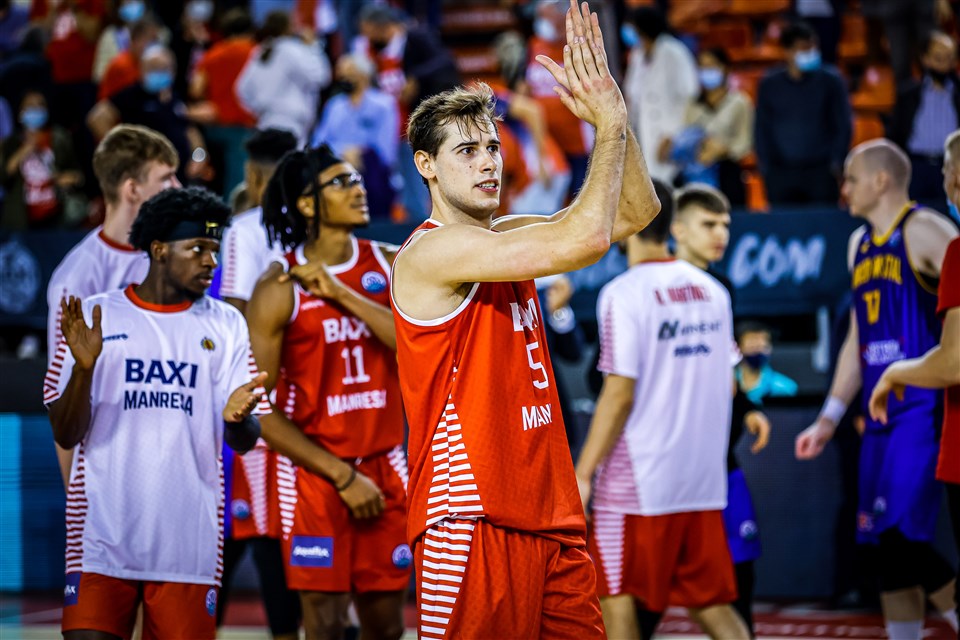 Guillem Jou
Guillem Jou
"We don't like to rush young players. We think if we rush them and get them to the first team too soon it's difficult for them to adjust. Basketball in Europe is complex and they need a lot of knowledge about the game. And this comes with years and years of practice and developing."
When asked if he thinks Romero's family slow-cooking idea fits with the club's youth approach, Manresa general manager Xevi Pujol agreed.
"For sure. Our young guys need to work hard and put in a lot of hours in the gym and weight room. As important as it is to give them an opportunity with the first team, just as important is doing it at the right moment, when they can be ready, really ready," Pujol said.
Some of Spain's biggest clubs have become well-known for bringing young top talents from outside the country into their youth ranks with the hopes they can become emerging pro level players already at 18 or 19 years old. And if that is not the case, those players will then be not offered a contract or sent on loan elsewhere - also outside the country at times - to see if they can take the next step.
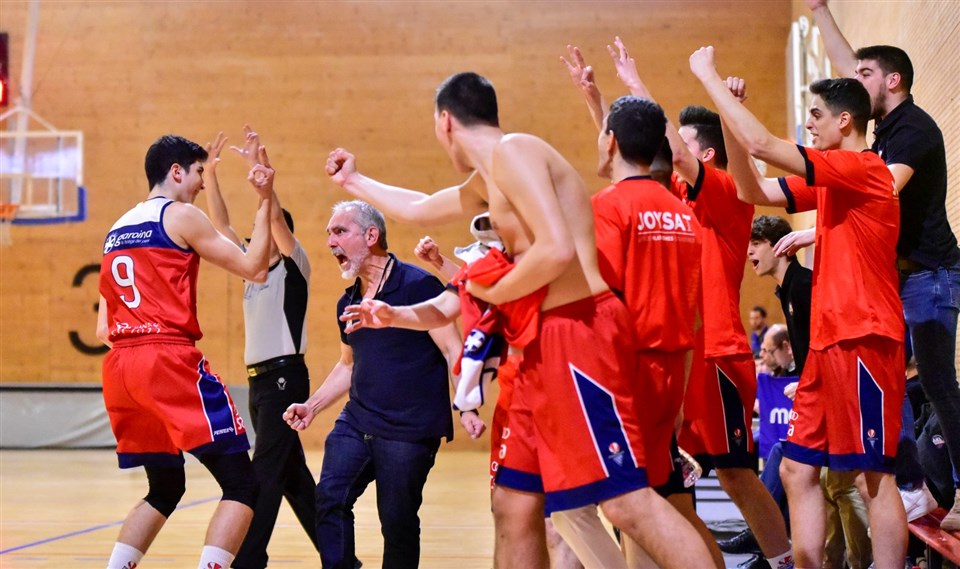 Coach Pere Romero showing his emotion for the Manresa youth team - Photo: xiuletfinal
Coach Pere Romero showing his emotion for the Manresa youth team - Photo: xiuletfinal
Pujol, Romero and Manresa do not believe in this approach - this fast food factory feeling if you will.
"We don't finish our work with kids when they are 18 if they are not good enough. We keep on working," Romero said. "We are like a family and we work really hard with the tools that we have - some times with fewer tools than other clubs. But we get results through hard work, not just the talent of the players."
He continued: "Our philosophy is just to get the best out of every player, and the best often is not to play for the first team but (Spain's fourth division) EBA or (Spain's third or second leagues) LEB Silver or Gold. This is our focus: to get the best and a little bit more from the players."
For those who might not be convinced with Jou being a good example of the club's youth development ability, here are some of the players who came up in Manresa’s youth teams: Rafa Martínez, Sergio Lllull, Marcus Eriksson and Pierre Oriola. Manresa fans also saw Serge Ibaka play for them when he was 19 while Marius Grigonis was just 20 when he joined at Manresa and Iffe Lundberg was 23 when he helped Manresa return to the Spanish top flight.
Manresa has not just produced young talented players but also coaches. Two-time Basketball Champions League winning head coach Joan Peñarroya came up in the Manresa system as a player and played many years for the club. And Jaume Ponsarnau, a native of nearby Tarrega, guided Manresa's youth teams before taking over as the club's head coach in 2006 and serving the post until 2013. Manresa was also home to Xavi Schelling, the club's physical trainer who is now with the San Antonio Spurs.
"Fast food"-level talents in system
Just because Manresa prefer to slow cook their talent, that should not be misconstrued that the Spanish club does not have some high level players waiting in the wings.
The closest young players to contributing to Manresa's pro team are Marc Peñarroya - Coach Peñarroya's 2002-born son; the 2003-born guard Toni Naspler, Gambian 2003-born forward Musa Sagnia; and 2002-born forward Pau Treviño. Peñarroya played last summer at the FIBA U19 Basketball World Cup 2021 while Naspler helped Spain win the title at the FIBA U16 European Championship 2019.
Some top young players from other clubs have been seeing Manresa's work and have switched teams. Alex Rubin de Celis came from Joventut Badalona while the 2005-born duo Pau Monterosa and Pol Compeny both came from Barcelona. The recognition has come from outside of Spain as well as the club's youth ranks also include 2003-born Ondrej Hustak from the Czech Republic, 2004-born Swiss talent Dylan Ducommun, 2005-born Edwin Niebles from Colombia and 2007-born Paul Ater Maker Bol from South Sudan.
Linking the solution to lack of second team
Manresa fans will have to look elsewhere to watch the quartet of Peñarroya, Naspler, Sagnia and Treviño. The current status of those four players represent a major portion of Manresa's development concept. Peñarroya is playing on loan with LEB Gold second division team Palma while Naspler and Sagnia are with LEB Silver side Zentro Basket and Treviño is also in the third division with Navarra.
Manresa have sent these players to other teams because they don't have their own second team. Spanish clubs are allowed to have a so-called "linked" team, a lower division club at which up to four players over 18 years of age can play. Clubs also can send five U18 players to the "linked" team. The difference between a player going to a linked team and a player out on loan is that the linked players can go back and forth between the two teams as needed.
So if Manresa needed Naspler or Sagnia for a couple of days of practice or for a game on the weekend, those two could return to Manresa and then head back to Zentro. Peñarroya and Treviño, however, are on loan and Manresa would need to have a new licence with the federation processed to get them back prematurely.
Manresa's linked team last season was the EBA club Artes. But long term, Manresa are looking to add a second team of their own - ideally in the EBA fourth division.
"We don't think that the perfect way exists to make the high jump from the junior level to the highest professional level. We think it would be great to have a second team in EBA. We are tying to get it - not just for the players who finish the junior teams but also for the U18, U16 and other players still playing in the youth system to practice with senior guys and help them grow up quicker," said Pujol.
Manresa has planned on creating a second team the last two years. The Covid-19 pandemic killed any hopes of getting it done for the 2020-21 season, and then Manresa were unable to get an EBA team for the 2021-22 season because there were no spots available from the Spanish federation. Romero said having a second team located nearby would be best. especially having the players closer.
"It's just easier to work with these guys. Also to give room to more players. It's easier if you have them here to follow the work with the players. That's the first thing. To have them in Manresa for any time you need them for the first team. The mobility and control is easier," Romero explained. "It's better for us to have a second team close to us - not in the same gym every day but have them in a village close to us and being our team."
Real Madrid showed the way with EBA
Manresa would not really need much convincing that having a second team "only" in the EBA fourth division can work. Look at what Real Madrid has been able to develop without a team in the LEB Gold or Silver. Luka Doncic and Usman Garuba both became stars without playing a single game in Spain's second or third division. And current young talents Juan Nunez, Tristan Vukcevic and Urban Klavzar as well as past prospects Amar Sylla and Mario Nakic all developed without playing in the LEB system either. That is because juniors still face higher level competition - and older players - in addition to Spain's U18 league.
"And you can always loan a player from EBA to a LEB team," Romero emphasized.
The goal of having a second team would solely be for the development of players, not the development of the second team.
"This team would be built to develop players not to grow as a team and then next year to play in LEB. If you play in LEB it comes with more difficulties. You have to travel a lot longer distances, and that disrupts the weekly work. When you play in EBA it's more local and regional," Romero said.
Having the players closer would also help another aspect of the club's youth development.
"We made some adjustments last summer about methodology. We wanted to prioritize the individual technique over tactics. The main idea is following the same philosophy that you can see with the first team: trying to run every time, sharing the ball consciously, proactive defense, being aggressive," Pujol said. "At the same time, we focus on values like effort, companionship, concentration, humbleness."
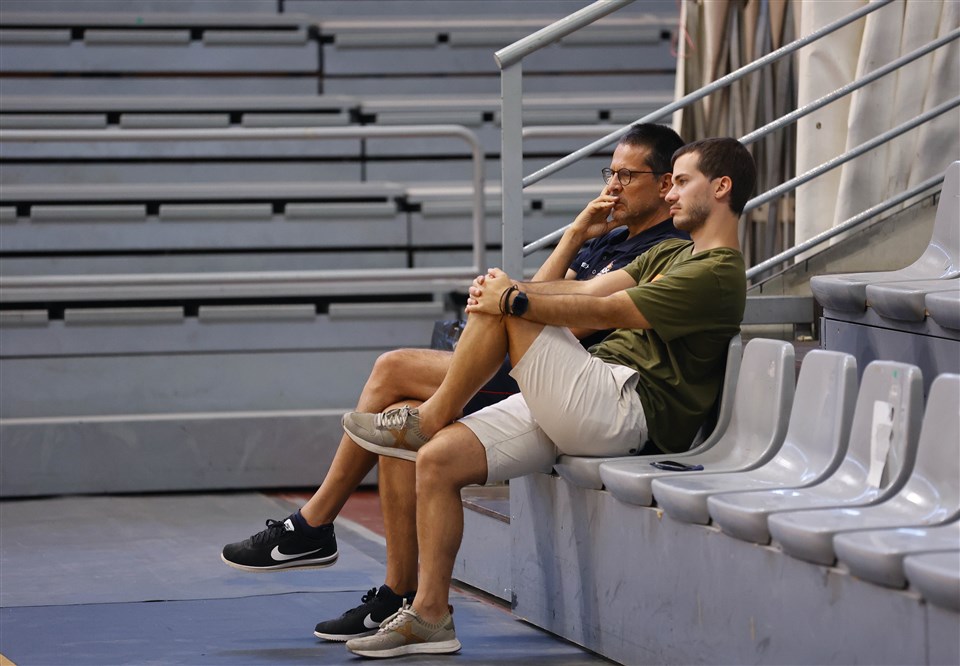 Manresa GM Xevi Pujol (front) and head coach Pedro Martinez
Manresa GM Xevi Pujol (front) and head coach Pedro Martinez
Companionship is almost not strong enough a term when it comes to Manresa - a club that features many people in the organization who are from the city and have been involved for many years.
Jospe Saez for example has been Manresa club president since 2017 but used to play in the club's lower categories. Romero said that connection to the city and club is priceless.
"This is ideal, but this is Manresa. And this is how Manresa is built: with people from Manresa usually and people who know the club," Romero said. "The president, our people on the board are all from Manresa. We don't have investors from the outside who don't know Manresa."
Manresa is about family, Romero emphasized once again.
"The best thing about us is that we are just together and we are a family. And I think this is one of the most important parts of the club: the personal treatment. There are not many people in Manresa, so we can treat the people like they are at home."
At home … and enjoying a slow-cooked meal with others you have shared years of thought-out preparations and work.
